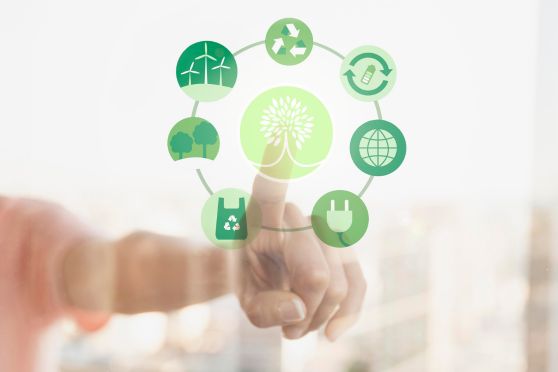The Youth Have a Decisive Role in Society Towards Sustainability


Unless you’ve been living under a rock, you know how widespread landslides and flooding have affected lakhs of lives in Himachal Pradesh and Uttarakhand during the recent heavy rains. Villagers and townsfolk needed rapid evacuation, and the situation severely impacted lives, and livelihood. This is just a case in point as there are several such incidents occurring globally due to environmental concerns. And therein comes the pressing need for sustainable business practices as many of these issues can be traced to compromised business ideas and strategies.
The responsibility of maintaining the Earth’s natural resources and making optimal use of them while conserving them should be the responsibility of each young person. You have got to be responsible and even accountable to the ones that are to follow. If we are lucky to be living on one of the most beautiful planets in the universe, we should be ready to do our little bit to protect and sustain it as well.
To this end, it is important to start early so that sustainability gets ingrained from childhood. Composting, water management, ways to recycle and reuse, reducing waste in our homes and public areas, intercepting, and preventing pollution can be taught to young minds in fun and innovative ways both at home and in school. Thereon, it is only natural that such practices will be carried on throughout one’s lifetime.
Youth is a phase of life that is intrinsically associated with freshness, creativeness, and openness to new ideas. While the youth values age-old and time-tested traditions, they aren’t afraid to take a few risks, make a few mistakes along the way and bring in modern thoughts and ways to enhance the quality of life.
It is heartening to know that many young people are involved in new and innovative ways of doing this. There are involved young people working actively in the ECO-UNESCO’s Youth for Sustainable Development Programme.
In business houses, sustainable business ideas and practices for environmental enhancement and eco-success should be an intrinsic part of the overall strategy. The Green Business Bureau suggests an exhaustive list of 20 points from switching all lighting in the office to LEDS and replacing unnecessary business trips with video calls to a responsible use of technology.
The 20 suggestions, in a nutshell, are –
As per the Wharton Global Youth Program, students must incorporate sustainability as a good business practice. A direct correlation exists between the operational business practices of an organisation and social values of the immediate and larger community. Conscientious leaders understand this importance and formulate strategies accordingly. In many cases, it is the socially- aware public that blows the whistle and holds an organisation accountable.
Students must be taught to identify the business process that support and respect sustainability vis-à-vis ones that threaten it.
Programmes have been instituted across the world with the objective of educating students regarding sustainability, outlining its clear benefits in a business organisation of any size.
Till as late as last year, research projects conducted in different nations showed that students’ involvement in sustainable practices in their daily life was, unfortunately, low. It is these students, specifically business students, who will emerge as future executives to lead companies and organisations. Therefore, it is imperative for students and the youth at large to change their attitude and values towards the subject for the greater interest and evolution of mankind, economic development for all, conservation of natural resources and enhanced quality of life for all species.
About the author: Ms Pallavi Jajodia is a dynamic entrepreneur and the visionary leader who is the Founder of Arva Innovations Pvt Ltd, a startup company working towards sustainability. With a diverse educational background and extensive professional experience, she has successfully navigated the realms of business and sustainability. Her commitment to creating positive change and her exceptional leadership skills have been instrumental in establishing Arva Innovations.